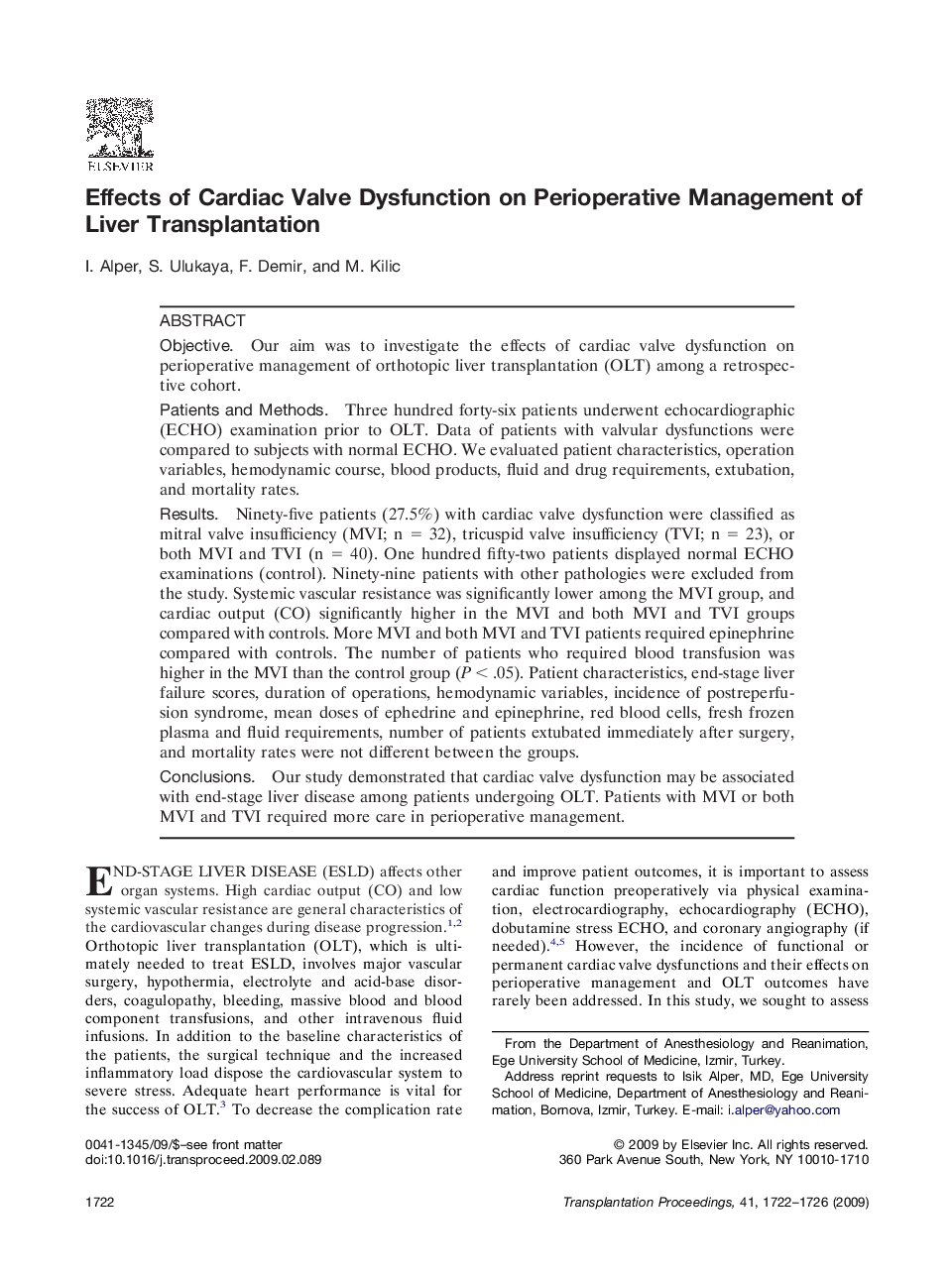| Article ID | Journal | Published Year | Pages | File Type |
|---|---|---|---|---|
| 4259273 | Transplantation Proceedings | 2009 | 5 Pages |
ObjectiveOur aim was to investigate the effects of cardiac valve dysfunction on perioperative management of orthotopic liver transplantation (OLT) among a retrospective cohort.Patients and MethodsThree hundred forty-six patients underwent echocardiographic (ECHO) examination prior to OLT. Data of patients with valvular dysfunctions were compared to subjects with normal ECHO. We evaluated patient characteristics, operation variables, hemodynamic course, blood products, fluid and drug requirements, extubation, and mortality rates.ResultsNinety-five patients (27.5%) with cardiac valve dysfunction were classified as mitral valve insufficiency (MVI; n = 32), tricuspid valve insufficiency (TVI; n = 23), or both MVI and TVI (n = 40). One hundred fifty-two patients displayed normal ECHO examinations (control). Ninety-nine patients with other pathologies were excluded from the study. Systemic vascular resistance was significantly lower among the MVI group, and cardiac output (CO) significantly higher in the MVI and both MVI and TVI groups compared with controls. More MVI and both MVI and TVI patients required epinephrine compared with controls. The number of patients who required blood transfusion was higher in the MVI than the control group (P < .05). Patient characteristics, end-stage liver failure scores, duration of operations, hemodynamic variables, incidence of postreperfusion syndrome, mean doses of ephedrine and epinephrine, red blood cells, fresh frozen plasma and fluid requirements, number of patients extubated immediately after surgery, and mortality rates were not different between the groups.ConclusionsOur study demonstrated that cardiac valve dysfunction may be associated with end-stage liver disease among patients undergoing OLT. Patients with MVI or both MVI and TVI required more care in perioperative management.
